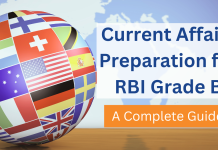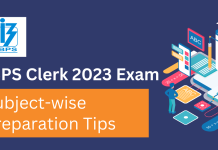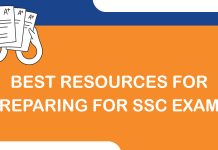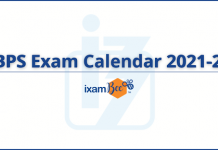Are you aspiring to work in the banking sector and planning to appear for the Reserve Bank of India (RBI) Grade B Exam?
If yes, then you must be aware of the high level of difficulty and challenging nature of this exam. With thousands of candidates competing for a limited number of vacancies, cracking the RBI Grade B Exam is no easy feat.
Apart from a competitive environment, complex questions, and a vast syllabus, the RBI Grade B Exam also requires candidates to have excellent time management skills and a deep understanding of subjects such as economics, finance, and banking.
With proper guidance and dedication towards their preparation, candidates can aim to crack the exam and secure a fulfilling career in the banking sector. In this blog, we will explore the various factors that contribute to the exam’s toughness and what it takes to succeed.
1. Exam Pattern and Syllabus
The RBI Grade B Exam pattern and syllabus consists of three phases: Phase 1, Phase 2, and an interview. Phase 1 is an objective type test with multiple-choice questions, while Phase 2 includes both objective and descriptive type questions.
The syllabus for the exam covers various subjects including General Awareness, English Language, Quantitative Aptitude, Reasoning Ability, and Economic and Social Issues.
In Phase 1, candidates are tested on basic knowledge and aptitude, while Phase 2 assesses their understanding of the subjects in depth. The interview round evaluates the candidate’s personality, communication skills, and knowledge of current affairs. This three-phase exam ensures a comprehensive analysis of candidates’ abilities and knowledge.
2. High Competition
The competition for the RBI Grade B Exam is extremely fierce due to the limited number of vacancies available compared to the large number of aspirants.
This creates a highly competitive environment where candidates need to outperform others in order to secure a high rank and clear the exam. With candidates coming from various backgrounds and levels of preparation, the level of competition is intense and requires candidates to give their best to stand out.
3. Complexity of Questions
The questions in the RBI Grade B Exam are designed to assess not just the candidate’s knowledge but also their analytical thinking and problem-solving skills. The questions are not straightforward and often require critical thinking to arrive at the correct answer.
As the exam progresses through different phases, the questions become more challenging, testing the candidate’s ability to apply their knowledge to real-life situations. This complexity of questions demands a deep understanding of concepts and the ability to think critically in order to excel in the exam.
4. Vast Syllabus
The syllabus for the RBI Grade B Exam is extensive, covering a wide range of subjects. Candidates need to have a strong grasp of topics such as economics, finance, banking, current affairs, and general awareness.
The depth of the syllabus and the need to cover multiple subjects make it challenging for candidates to thoroughly prepare for all areas. It requires a dedicated study plan and consistent effort to master the vast syllabus and be well-prepared for the exam.
5. Dynamic Nature of Questions
The RBI Grade B Exam is known for its unpredictable and dynamic nature of questions. Examiners aim to assess a candidate’s adaptability, quick thinking, and ability to apply knowledge to different scenarios.
This means that candidates cannot rely solely on rote memorization but must develop a deep understanding of concepts and be ready to tackle unfamiliar question formats. The dynamic nature of questions keeps candidates on their toes and tests their ability to think critically and analyze information effectively.
6. Time Management
Time management is crucial in the RBI Grade B Exam due to the limited time given to solve a large number of questions. Candidates must efficiently allocate time to each section, ensuring they have enough time to read and analyze the questions and provide accurate answers.
Effective time management skills help candidates avoid rushing through questions or spending too much time on a single question, ensuring they utilize the given time optimally. Honing time management skills through practice and mock tests is essential to perform well in the exam.
7. Personal Interview
The personal interview round in the RBI Grade B Exam is a crucial step in the selection process. It evaluates the candidate’s personality traits, communication skills, and knowledge of current affairs. The interview panel assesses the candidate’s confidence, ability to think on their feet, and suitability for the role.
The interview round is equally demanding and carries significant weightage in the final selection process, making it essential for candidates to prepare thoroughly and showcase their best selves during this stage.
8. Lack of Proper Guidance
One of the challenges faced by aspirants preparing for the RBI Grade B Exam is the lack of reliable study material and coaching. Without proper guidance, it becomes more difficult to navigate through the vast syllabus and understand complex concepts.
Candidates may struggle to find the right resources or strategies to effectively prepare for the exam. Having proper guidance, whether through coaching institutes, online courses, or experienced mentors, can greatly assist candidates in their preparation and improve their chances of success.
9. Limited Attempts
Candidates for the RBI Grade B Exam have a limited number of attempts, which adds to the pressure they face. This limited number of attempts encourages candidates to perform their best within a few tries to secure their desired position.
The fear of exhausting attempts can lead to increased stress and intensify the difficulty of the exam, making it crucial for candidates to plan their preparation strategically and give it their all in each attempt.
10. High Expectations
Since the RBI Grade B Exam is conducted by the central bank of the country, the expectations from candidates are exceptionally high. Candidates are expected to have a deep understanding of the financial system, economic concepts, and banking operations.
The central bank’s reputation and importance in the country raise the bar for candidates, demanding that they possess comprehensive knowledge and critical thinking skills. The high expectations set by the RBI contribute to the overall toughness of the exam, necessitating thorough preparation and dedication from candidates.
To clear the RBI Grade B Exam, candidates should focus on the following topics:
- Economic Concepts and Current Affairs: Stay updated with the latest economic concepts, developments, and current affairs related to the financial sector.
- English Language: Work on improving vocabulary, grammar, comprehension, and writing skills.
- Quantitative Aptitude: Practice solving mathematical problems, improve speed and accuracy in calculations, and understand data interpretation techniques.
- Reasoning Ability: Enhance logical and analytical thinking skills, practice solving puzzles, coding-decoding, and critical reasoning questions.
- General Awareness: Stay well-informed about national and international events, government schemes, economic policies, and banking-related news.
- Economic and Social Issues: Deepen understanding of various economic and social issues prevalent in the country and their impact on the banking sector.
Exam Preparation Tips For RBI Grade B Exam
- Understand the Exam Pattern and Syllabus:
- Familiarize yourself with the exam pattern, including the number of sections, types of questions, and time duration.
- Thoroughly go through the syllabus, noting down the topics and sub-topics for each section.
- Understand the weightage of marks for each section, as this will help you allocate time and effort accordingly.
- Develop a Study Plan:
- Create a well-structured study plan dividing your preparation time for each section.
- Break down the syllabus into smaller, manageable portions, ensuring all topics are covered.
- Set realistic goals for each study session and keep track of your progress regularly.
- Focus on Conceptual Understanding:
- Instead of rote memorization, strive to understand the concepts underlying the topics.
- Look for real-life applications and examples that demonstrate the practicality of these concepts.
- Practice solving problems and questions that require applying these concepts.
- Practice Mock Tests and Previous Year Papers:
- Regularly solve RBI Grade B mock tests that simulate the actual exam environment.
- Solve RBI Grade B previous year question papers to familiarize yourself with the exam format and types of questions.
- Analyze the results of mock tests and identify areas of improvement for focused preparation.
- Stay Updated with Current Affairs:
- Read newspapers, magazines, and follow resources like Beepedia sources to stay updated on current events.
- Focus on current affairs related to economics, finance, banking, and other relevant topics.
- Make notes and revise regularly to retain the information effectively.
- Seek Guidance and Take Help:
- Interact with mentors, faculty members, or fellow aspirants to seek clarification on doubts.
- The best source for seeking guidance is to enroll yourself in RBI Grade B online course.
- Participate in group discussions or online forums to exchange knowledge and insights.
Conclusion
Cracking the RBI Grade B Exam requires meticulous preparation, strong critical thinking skills, and a comprehensive understanding of the subjects. By following a structured study plan, following a conceptual approach, practicing regularly, staying updated with current affairs, seeking guidance, and managing time effectively, candidates can increase their chances of success.
To help you prepare 50% faster for competitive exams, ixamBee provides a free Mock Test Series and all the Current Affairs in English and Current Affairs in Hindi in the BeePedia capsules for GA Preparation. You can also get the latest updates for Bank PO, Bank Clerk, SSC, RBI Grade B, NABARD, and Other Government Jobs.















